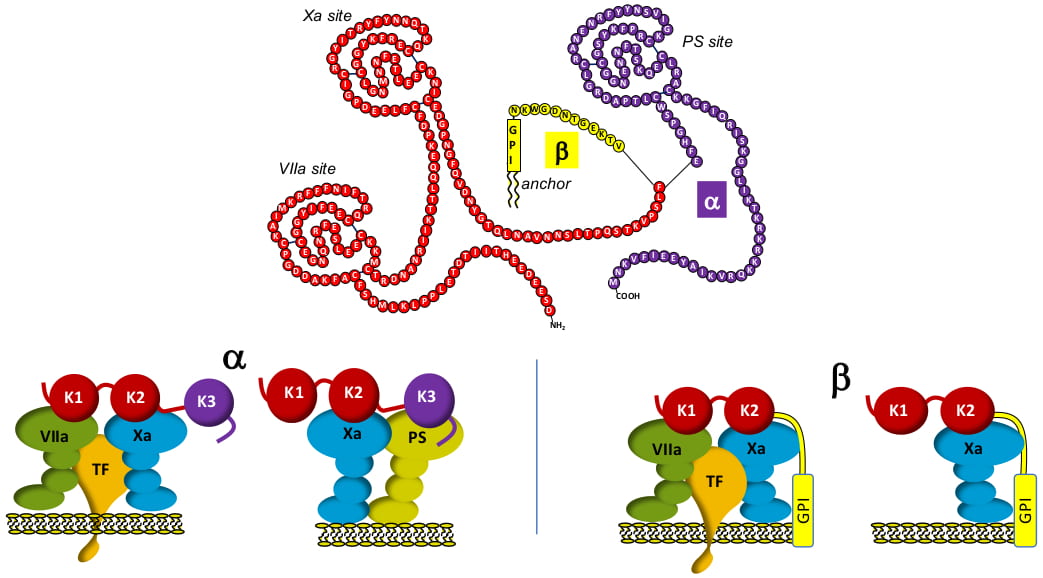We study the regulation of tissue factor (TF)-triggered hemostasis and the interrelationship between coagulation and cell signaling in pathophysiology. Our investigations stem from discoveries we originally made while in the laboratory of Dr. George Broze and are centered on a novel endogenous coagulation inhibitor called Tissue Factor Pathway Inhibitor (TFPI).
For hemostasis, upon vascular injury TF becomes exposed to blood where it binds activated factor VII (FVIIa) triggering a cascade of serine proteases that lead to the formation of a fibrin clot to abate bleeding (figure 1). Beyond coagulation, TF mediates cell-signaling via proteases generated by the coagulation pathway. As such, TF is critical for hemostasis; however, TF also plays a pathogenic role in thrombosis, coagulation-associated inflammation, multi-organ failure associated with infections and tumor growth, angiogenesis and metastasis.

TFPI is a multivalent Kunitz-type proteinase inhibitor that produces FXa-dependent feedback inhibition of the FVlla/TF catalytic complex, directly inhibits FXa, and suppresses TF-dependent cellular signaling (figure 2). In humans, TFPI is expressed as isoforms TFPα and TFPIβ, yet, the in vivo pathophysiologic impacts of each individual isoform are unknown.

Like humans, mice make α and β, but unlike humans, mice express a third TFPI isoform γ that we recently discovered has a dominant influence on study outcomes. Using CRISPR technologies we have successfully generated γ-deleted mouse strains that express TFPIα and β, TFPIα only and TFPIβ only. These strains will enable us and others, for the first time, to decipher the individual impacts of TFPIα and TFPIβ on hemostasis and in models most relevant to human TF-associated diseases.
Work in the laboratory involves molecular biology and biochemistry techniques for the expression and characterization of native and mutant recombinant proteins; the development of structure/function studies using purified systems and plasma-based assays; the production of monoclonal and polyclonal antibodies for the development of in vitro immunoassays, histochemical studies and in vivo studies; transgenic and gene deleted mouse strain generation for impact on hemostasis and for the assessment of particular interventions in mouse models of the various human TF-associated diseases.

Thomas Girard, PhD
Assistant Professor of Pediatrics
- Email: tgirard@nospam.wustl.edu
Tissue factor (TF) triggers coagulation, which is critical in hemostasis to abate bleeding, however, TF also contributes unfavorably to thrombosis, inflammation, infections and cancer diseases. Tom Girard studies the initiation and regulation of hemostasis and how hemostastic mechanisms influence disease. His investigation center on tissue factor pathway inhibitor (TFPI), which is the endogenous regulator of coagulation and the major inhibitor of TF activities. Girard’s weekend “hobbies” include gardening (aka yardwork) and construction.